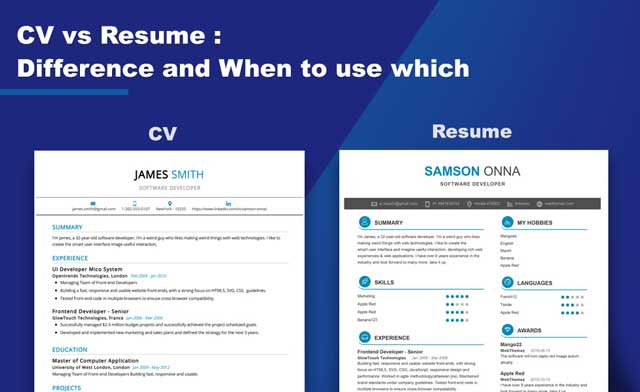You may learn how to master the Google Interview Questions and Answers for Software Engineers from this post.
We will provide a COMPLETE practical guide on how to successfully prepare for Google interviews as a software engineer.
Please read this for advice on how to dominate Google interviews.
Google Interview Questions and Answers for Software Engineers
Interview Structure
Let me start by stating that the interview process is the same for both the SDE 1 (L3) and SDE 2 (L4) posts.
There will be five rounds altogether.
- 1 phone-based screening round
- 3 rounds of on-site coding
- 1 Googliness round
The comments for each round will be one of the following:
- Strong Hire
- Hire
- Leaning Hire
- Learning No Hire
- No Hire
In every round, try to avoid anything below a “leaning hire.”
For L3, try to get at least one hire (and preferably more). Try to get at least 2 hires (or higher) for L4.
READ MORE>>> How to Answer Coinbase Interview Questions: See Simple
The Coding Round
They might offer you another chance to impress them in another coding round, even if you receive a leaning no-hire in exactly one coding round. But do your best to earn an “H” or higher on that. If you don’t, you could get an L4 to L3 degradation or get no options at all.
The first four rounds are underway. Although they may go by different titles, they are all essentially concerned with your coding abilities.
You’ll be given a single DS or Algo question that has numerous elements with varying degrees of difficulty that you must complete in less than 45 minutes.
First, I advise you to familiarize yourself with the programming language you’ll use to code during the rounds.
I liked C++ more. As a result, I went over every important idea connected to pointers, including the difference between a reference and a value, structs, and classes, using STLs, and the basics of memory allocation.
Trust me, having a solid understanding of coding languages is essential! One interviewer, in particular, tried to catch me on a line I wrote where I was essentially freeing a set’s allocated memory. If I hadn’t previously reviewed my C++ principles, I would have definitely stumbled.
Now, I advise you to review each of the algorithms below (and the data structures needed to implement them).
PS: Just thoroughly examine their idea and work through a couple of familiar difficulties.
For a thorough understanding of each algorithm, watch several YouTube theory videos.
Data Structure
- Binary Search
- Graphs, BFS/DFS/ Flood fill
- Tree Traversals
- Hash Tables
- Linked Lists, Stacks, Queues, Two Pointers, and Sliding Windows
- Binary Heaps
- Dynamic Programming
- Union Find
- Ad hoc/ Strings Manipulators
- Arrays
- Recursion. Backtracking. Greedy Algorithms
- Other good-to-know topics: Tries, segment trees/Fenwick trees bitmasks.
Once it is finished, I advise you to complete all the Level 7 questions on the Interview Bit platform.
Link: https://www.interviewbit.com/courses/programming/
These are all well-known and huge issues! They lay a strong foundation for you by covering all of the fundamental complexity of all the algorithms.
READ: 20 US Visa Interview Questions and AnswersBe a good communicator!
Don’t try to speak quickly. Pay attention to the interviewer. Be composed and gracious. The problem statement can be intentionally left unclear by interviewers. Clear any doubts you have first. Continue to periodically describe what you are working on as you write.
If your English isn’t very strong, try conducting practice interviews to get comfortable with it.
Additionally, you can conduct interviews throughout the time when they are scheduled for you in your nation.
This is a VERY important factor!
Rare people may find it difficult to understand an American or British accent, or in some situations, they may find it difficult to understand you if you have a really strong accent.
Thus, the communication gap could result in inappropriate conversation during the interview.
READ>>> How to Crack KPMG Interview Questions and Get the JobThe quality of the code is another crucial factor.
Write code that is production-ready and addresses all conceivable edge cases. An illustration. It would be more aesthetically attractive to encapsulate a method you are writing in a real Solution class. Create the necessary private and public methods. modality it.
not to mention verbosity in the code!
Give your methods and variables meaningful names. neither too long nor too short. Just right.
Names ought to make it obvious what they do. Most prefixes of methods include a verb. Case your camels or snakes properly.
It is imperative that you take care of these few items.
Even if you successfully answer every question within the allotted time, failing to do so could result in rejection or downgrading from L4 to L3!
The Googliness round is the last and most crucial one.
Don’t disregard it (even though it is light in most cases).
Here, they test your ability to accept responsibility for your own errors. Basically, your humility, Your leadership qualities, critical thinking abilities, etc.
I would advise you to commit to memory a few of the major projects that you would most like to talk about at the interview. You ought to be aware of the administrative and technological facets of it that were in your hands.
- What initiative did you take on your own?
- What might have been enhanced?
- What kind of comments did your supervisor make?
- How did you handle any misunderstandings you had with a team member?
- How did you reply to your manager’s critical comments?
- Have you ever missed a deadline that was expected of you?
As well as similar queries. Get ready for it.
READ>>> How to prepare for a Graduate Trainee Interview
Try not to pretend to be in heroic situations because they will almost certainly catch you.
Be honest, but at the same time work to project an image of someone who is always willing to improve from failure.
Most importantly, use the STAR Framework to respond to all of the interviewer’s real and fictitious scenario questions.
It is necessary! Your preparedness will quickly make a positive impression on the interviewer.
Steps to pass Dangote Group Interview Questions
For more, you can join Us on Twitter or use the comment box below for your questions.






